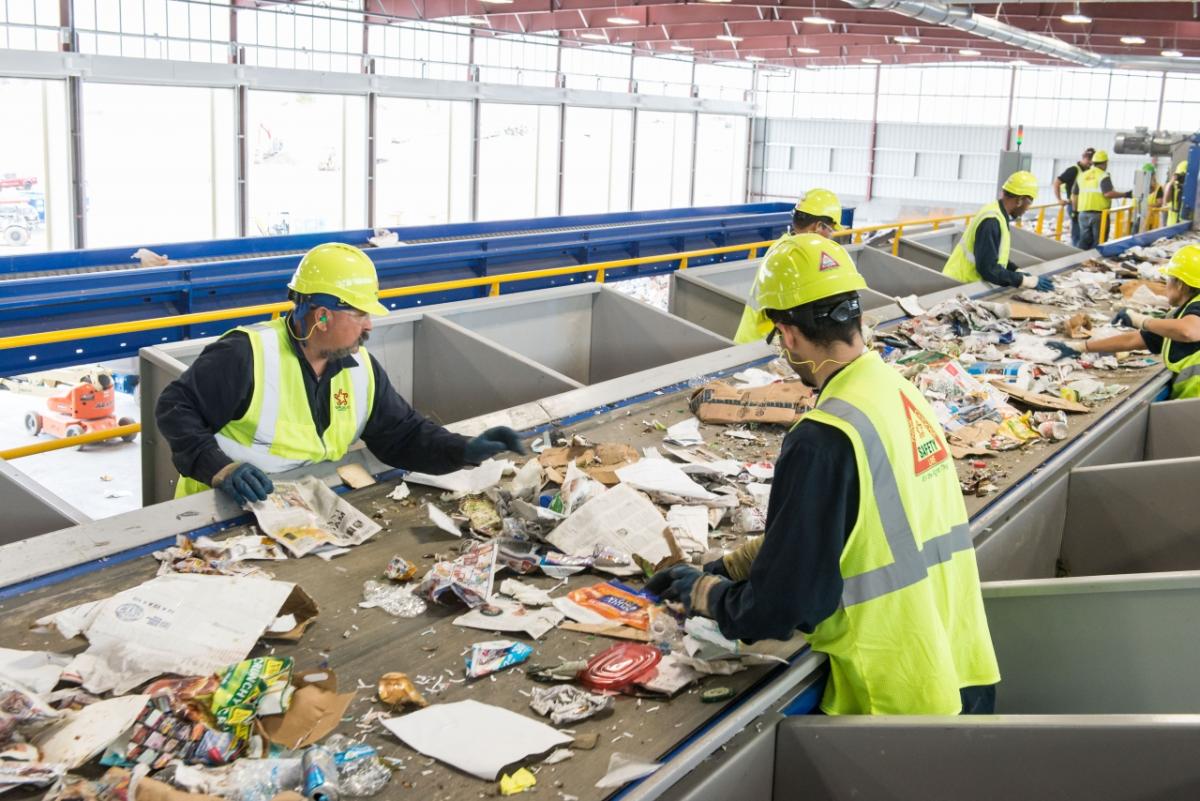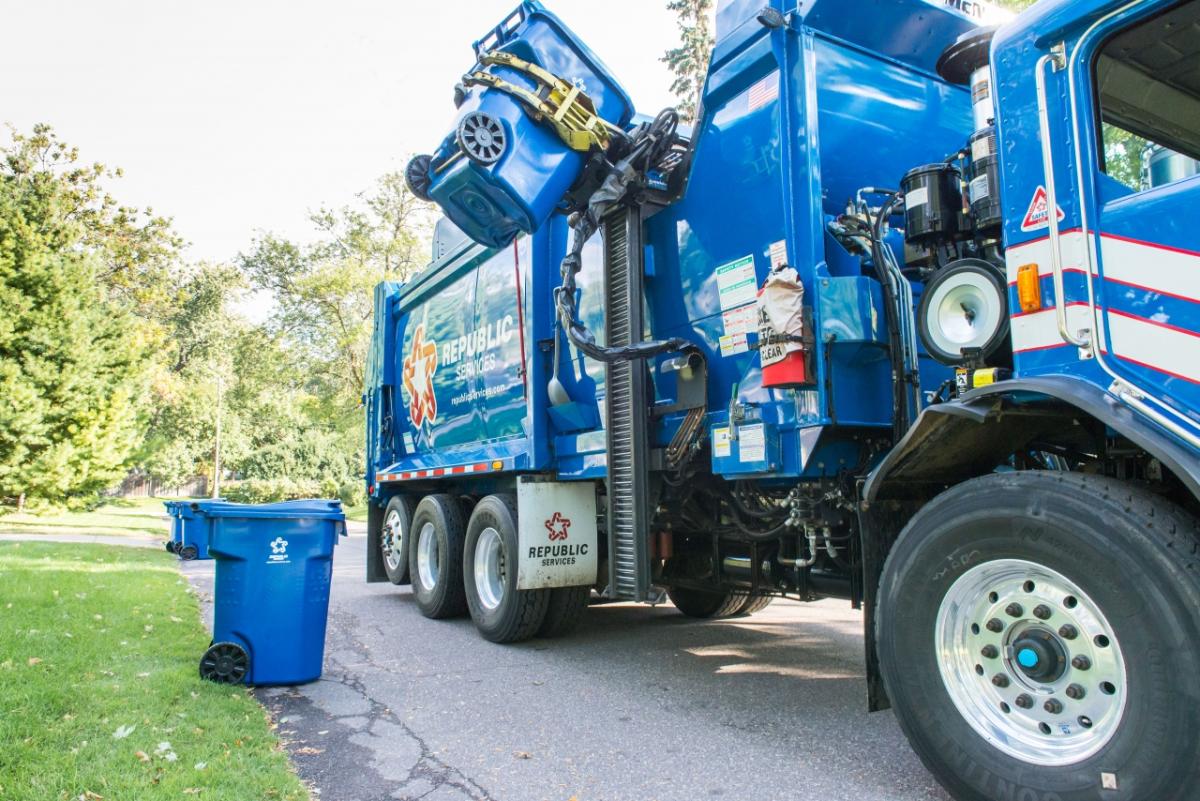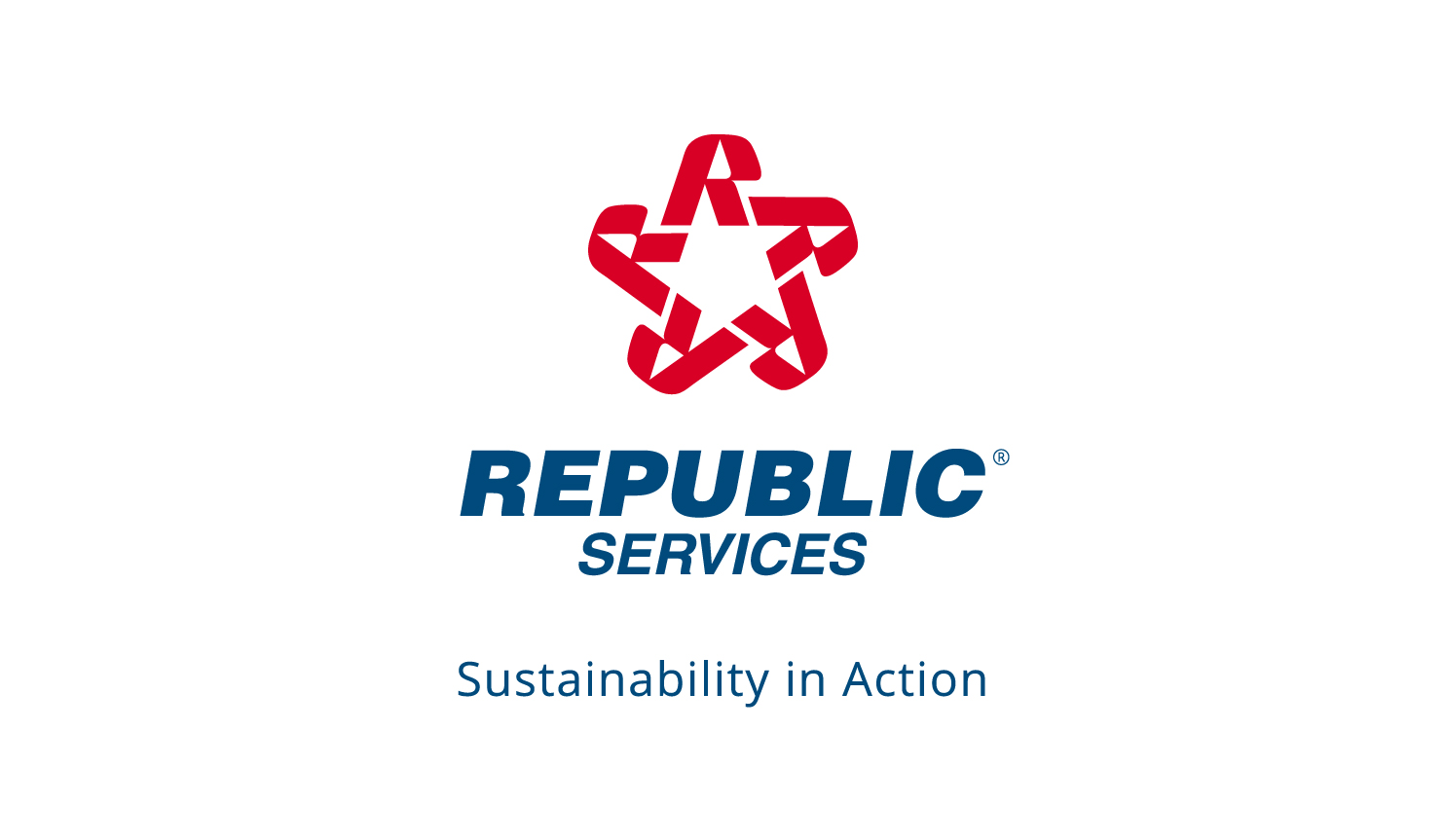Technology, Consumer Education Move Recycling Forward
On November 19, Pete Keller, vice president of recycling and sustainability for Republic Services, participated in the Solid Waste Association of North America (SWANA) and the Institute of Scrap Recycling Industries, Inc. (ISRI) MRF Summit. Keller spoke on the “Cut Contamination at the Curbside and in the MRF” panel and highlighted how MRF operators can use consumer education and technological advances to combat the challenge of recycling contamination. After the panel he answered questions about Republic’s efforts to cut contamination.
What’s the greatest challenge in educating consumers, and how is Republic Services overcoming that challenge?
Keller: One of the greatest challenges we face when educating consumers is confusion in the marketplace. As professional recyclers, we know that not all plastics are created equally, and that not all types of packaging material are recyclable. But our customers want to be great recyclers and often try to recycle items, like mixed-material packages or items contaminated by food waste, that aren’t recyclable.
It’s our responsibility to make recycling easy to understand and simple to execute. And, that’s a responsibility that Republic Services takes very seriously. We’ve invested time and energy into Recycling Simplified, a platform that we created to educate and empower customers to be great recyclers.
Through Recycling Simplified, we ask customers to focus on three things when it comes to recycling at home. First, know what to throw. Every community and recycling program is a little bit different, so understanding what should be thrown away versus what materials can be recycled in the local community is key. Second, we remind people that the best way to recycle items is when they are empty, clean and dry. Third, don’t bag it. Many consumers don’t know that bagging their recyclables makes it nearly impossible to recycle that material.
How are you working to get customers committed to being effective recyclers?
Keller: For Republic Services, getting consumers committed to effective recycling is really focused on two areas. We stress the importance of recycling to maximize the use of our resources. It’s important that our customers understand that these are valuable natural resources, and in many instances, they are finite resources. Any time we’re keeping materials in circulation for longer, that’s less stress on the natural environment.
While the broader environmental education is important, we also focus on leveraging unique business models that entice customers to be effective recyclers. Through our business structures, we provide financial incentives for our customers to be better recyclers. By incentivizing customers to recycle more of the right types of materials, we help them create more value within their communities.
What role do technological innovations play in recycling center processes?
Keller: Technological innovations have changed the recycling game. In the past five years, the advancements have allowed recycling centers to process recyclable materials better and remove contaminated items. Specifically, the innovations in and around optical scanners and robotics have transformed modern recycling. Optical scanners are able to recognize different types of resin and, if equipped properly, can identify different types of items, like a piece of paper or an empty chip bag. The high-speed, high-precision material recognition and separation plays a significant role today. It allows us to process many more types of material much faster, and with less labor. Using technology like this creates better recycling outcomes.
How is Republic Services pushing forward with modern, tech-driven recycling?
Keller: We continue to make investments in our existing recycling assets. Last year, we opened a new “Next-Gen” recycling facility in Plano, Texas, which includes optical sorters, robotic sorting arms, anti-wrap fiber screens and an automated touch screen control system and tablet-based capabilities that allow for real-time systems management, monitoring and data acquisition. And that’s just one example of how we’re investing in the future of recycling and the future of our communities.
What investments has Republic Services made in recycling facilities across the country?
Keller: In 2019, we invested in half of our recycling facilities by integrating optical scanners, robotics, or other enhanced processing equipment. Typically, we invest $20-25 million annually on new technology in our facilities. In addition to that, we invest another $20-25 annually to replace old equipment. We are continuing to make these investments in 2020 and are already planning for 2021.
At the end of the day, it’s clear that consumers care about recycling and about being good stewards of their products. Recycling companies and advocates are working every day to make recycling accessible and simple for consumers through continued education and investments in recycling facilities.



